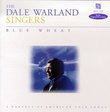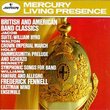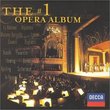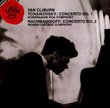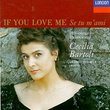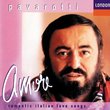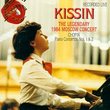| All Artists: Stephen Hough Title: Liszt: Sonata, Ballades and Polonaises Members Wishing: 0 Total Copies: 0 Label: Hyperion UK Release Date: 12/12/2000 Album Type: Import Genre: Classical Styles: Chamber Music, Forms & Genres, Ballads, Sonatas, Historical Periods, Classical (c.1770-1830), Romantic (c.1820-1910) Number of Discs: 1 SwapaCD Credits: 1 UPC: 034571170855 |
Search - Stephen Hough :: Liszt: Sonata, Ballades and Polonaises
 | Stephen Hough Liszt: Sonata, Ballades and Polonaises Genre: Classical
Stephen Hough has already proven his virtuoso credentials elsewhere, so he doesn't need to worry about his reputation for technique with this Franz Liszt collection. And his playing of the Ballade No. 2--deeply serious Lis... more » |
Larger Image |
CD DetailsSynopsis
Amazon.com Stephen Hough has already proven his virtuoso credentials elsewhere, so he doesn't need to worry about his reputation for technique with this Franz Liszt collection. And his playing of the Ballade No. 2--deeply serious Liszt, and bristling with technical challenges--is enough to dazzle any listener. So when Hough doesn't dazzle as much in other challenging music, like the Polonaise No. 2 and, above all, the Sonata, we can presume that he is making interpretive decisions instead of ducking hazards he can't overcome. Hough's interpretation of the Sonata does pay some musical dividends. He takes the music very seriously and aims for expression at every moment. Still, there are climaxes in the Sonata, and in the Polonaise No. 2, that simply don't come off with sufficient force. Hough's choices, while they may be honorable, diminish the contrast between fury and philosophy that can be heard more fully in Liszt performances by Martha Argerich and Sviatoslav Richter. --Leslie Gerber Similarly Requested CDs
|
CD ReviewsAmong the best recordings of the Sonata Brooks Hafey | Columbia, MO USA | 01/16/2001 (5 out of 5 stars) "I have always enjoyed the recordings of Stephen Hough and was very excited about this new release. I must admit that on the first listen, I skipped the Polonaises and Ballades and went straight for the Sonata. My first impression of the Sonata was not favorable; it seemed slow and too careful. However, repeated listenings have made me think that this is among the best recordings of the Sonata. Hough pedals through the descending line of the opening, creating a wonderfully ominous atmosphere. The passage at 7:12 on track 6 is most often played with a wild accelerando (which Liszt did not write). Hough avoids this tradition and plays it as written (a practice for which he is well-known). The result is amazingly beautiful. I too enjoy the drive of Horowitz and Argerich, they are phenomena in a class of their own. However, this new recording is much more satisfying emotionally. The Polonaise in C Minor sounds very much like Chopin, and Hough plays it very convincingly. The other gem on the recording is the 2nd Ballade. Never have I heard it played more lovingly, with greater attention to detail. A highly recommended disk." Hough Plays Liszt = buy without further ado? Mireille Wastwater | England | 12/15/2000 (5 out of 5 stars) "If you're expecting an attempt at the Liszt Sonata Speed Record, held jointly by Horowitz and Argerich, then you'll be disappointed. There are many recordings in the 30~34 mins. range. Demidenko, Pollini, Pletnev (X2), Pizarro and Zimerman fall into this category (and I expect most others out there do as well) as does this one. In my review of Zimerman's recording I said that in my opinion, his was the best overall account. But I also mentioned that Stephen Hough was about to release his account, which 'may well replace Zimerman's version as the King of all Liszt Sonatas.' And so.. Does it? Right from the first few bars you can tell that Hough has thought out this music as carefully as he looked under each stone in the Schubert Sonatas. He seems to pay particualr attention to the voicings of the left hand - 7 minutes into the piece, I chuckled out loud at the way he matter-of-factly brought out the left hand notes. He plays the piece as though it were a story, and he reads it very well. I don't think this knocks Zimerman off the top spot, but it joins him there. I wonder when Kissin or Volodos are going have a go. The rest of the CD offers some interesting moments, but you can tell why they're not as famous as his more er... famous works. They have their nice tunes but are surrounded by material which doesn't quite lift it to the heights necessary to achieve more popularity. All in all, a disc worthy of a place alongside, or above, his previous Liszt recordings." As you like it Albert E. Everett | Little Rock, AR United States | 02/12/2002 (5 out of 5 stars) "This is a great CD. As usual, Mr. Hough is magnificent: beatiful when the music is expressive, and brilliant in the cadanzas and other filagreeIn my opinion, the musical stars of the show are the second Polonaise and the second Ballade. Immersed in Chopin's music in my younger days, I always considered his Ballades as narratives telling wondrous and fabulous stories (like something out the "Arabian Nights" perhaps).The second Ballade evokes the same feeling: wondrous, fabulous, glorious. The opening is awesome. There are moments when I am reminded of his Benediction.Fifty-some years ago. I heard Horowitz play this Sonata; it was terrific. I haven't hear any records or CDs that can reproduce the effects of its live performance. In my opinion, this CD is no exception. The pianist is being the very best he can be, but is dealing with too many slam-bangs in the score. So I leave this sonata to more knowledeable reviewers,"
|

 Track Listings (10) - Disc #1
Track Listings (10) - Disc #1